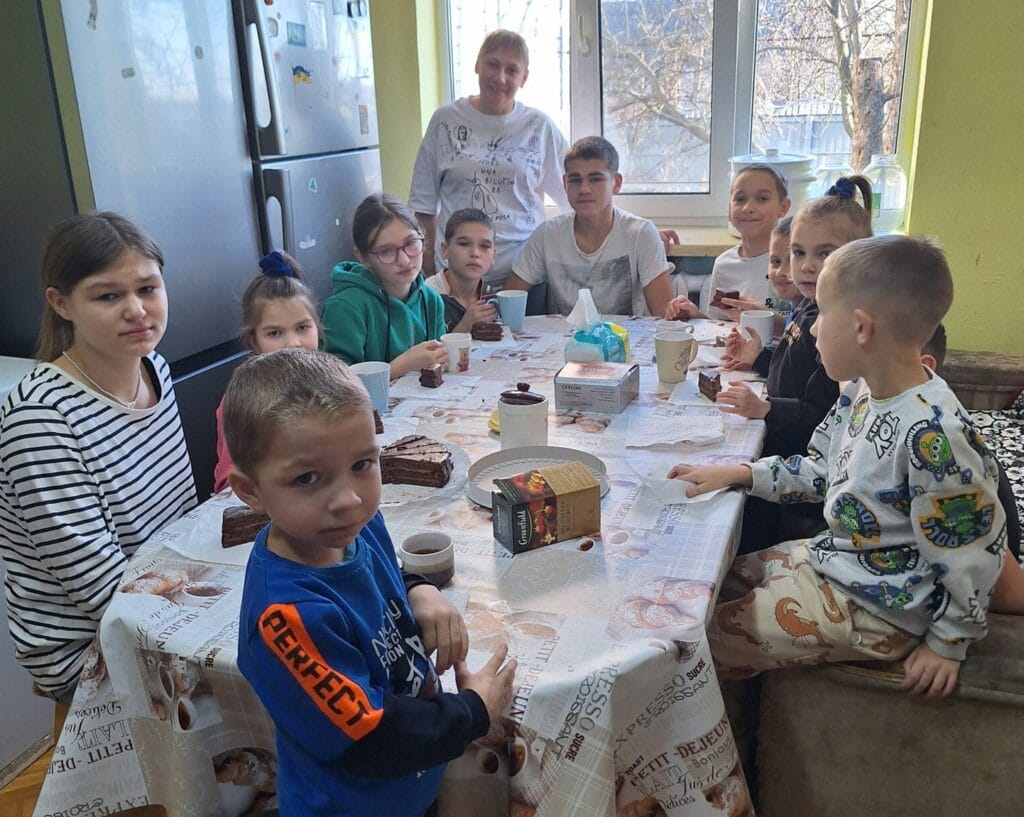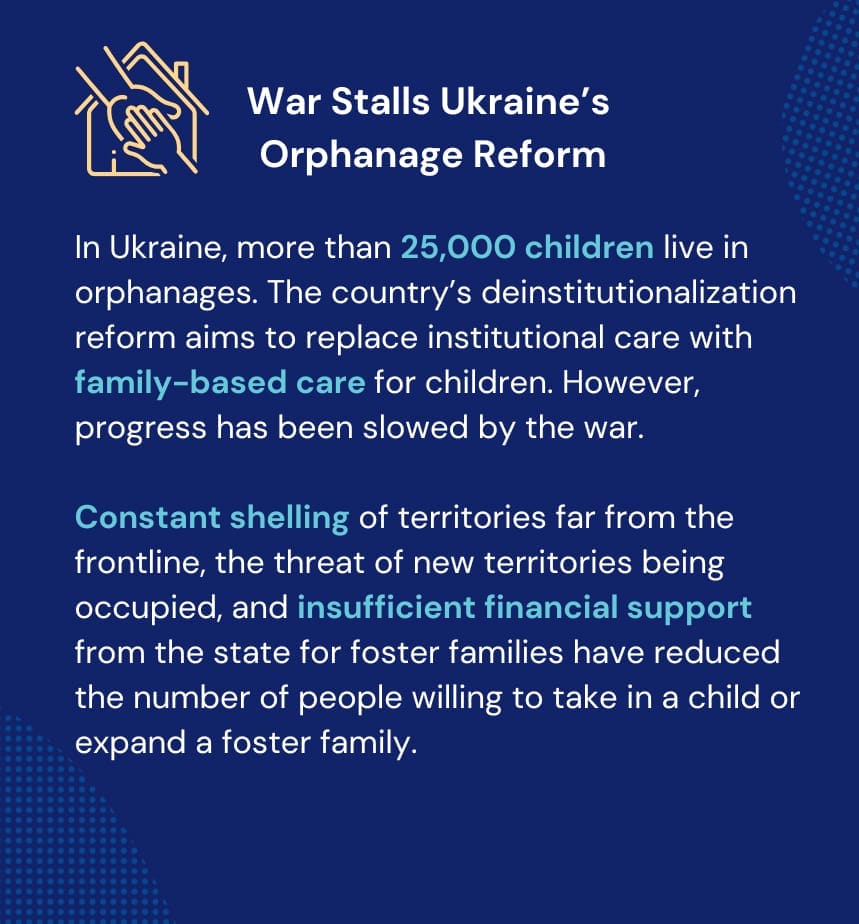News > Blog
Supporting Foster Families Amid Ongoing War in Ukraine
Published 01/20/2025 by Global Communities
By Galyna Goreshniak
Growing up as an only child, Olha Gez always dreamed of having a big family of her own one day. Now, she runs a family-type orphanage in Dnipropetrovsk oblast — providing a safe haven for some of the most vulnerable children experiencing the war in Ukraine.
“My childhood dream came true when I brought these children home,” the foster mother says. “… They slept and snored so sweetly.”
Currently, Olha and her husband foster 11 children, ranging in age from 5 to 16 years old. To support the family, Olha’s husband had to take a job as a construction worker in another region of Ukraine. Although the state’s social assistance funds are sufficient to cover food expenses, Olha mentions that meeting the rest of their needs has been difficult, especially during the ongoing war.
“We live in a remote place where almost no one comes to visit us,” she says. “That is why we are very happy and grateful for any help.”

Supporting foster families during the war is a crucial but often overlooked aspect of humanitarian work. These families are responsible not only for the welfare, upbringing and development of many children from vulnerable backgrounds but also for ensuring that the children feel safe, even when fighting is happening right next door. In recent weeks, Dnipropetrovsk oblast has had more than 10 air raids a day with the frontline just 3 miles from the Russian border.
Recognizing this challenge, Global Communities partnered with Maximum Charitable Foundation, a civil society organization that supports children in difficult life circumstances, including those in orphanages and foster families. Under the Community-Led Emergency Action and Response (CLEAR) program, Maximum received funding from the United States Agency for International Development’s Bureau for Humanitarian Assistance (USAID/BHA) to set up a mobile team that travels to remote and hard-to-reach locations.
“Some foster families live more than 30 kilometers from each other, and the roads are often broken, so it is not easy for the state services to get to these families,” says Olga Glushkova, a Maximum case manager. “Our team reaches the most inaccessible places or families who do not have access to social institutions and provides case management services — social and psychological support to children and their families.”

Since partnering with the CLEAR program, Maximum has been able to provide a range of support to 77 families in Dnipropetrovsk oblast, including the Gez family. In addition to hygiene kits, the foundation supplies children in frontline territories with emergency backpacks that contain items they might need while staying in a bomb shelter during an air raid: a thermos, blanket, flashlight, whistle and anti-stress toy. The mobile team also conducts home visits to provide psychosocial support sessions. A social worker and psychologist organize joint activities to benefit both the caregivers and children.
According to Anna Sulima, a psychologist at Maximum, these visits are essential for families adapting to difficult life circumstances or in unique arrangements such as family-type orphanages. Mothers and other caregivers are given an opportunity to share their experiences and discuss any issues they might be having, while children participate in art therapy. Activities with modeling clay and other forms of play help them become more open, overcome their fears and anxiety, and share their innermost feelings in creative ways.
After a recent session, Solomon, one of Olha’s sons, expressed his hopes for the future as conflict continues close to the family’s home: “I dream that the war ends, that a peaceful, calm, free life finally comes to our family, and we live in peace together.”
While the CLEAR program received an extension that will allow Maximum to support families for another two months, Global Communities is committed to introducing the foundation’s impactful initiatives to other non-governmental organizations that might be interested in providing additional support. Maximum also plans to seek out additional funding, so its vital work can continue for vulnerable families throughout the region.





